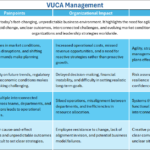10 Amazing Facts About The Human Brain
- By salomons.coach
- In Blog, Business
- 0 comment
Being a leader requires a multi-dimensional approach to the many situations. Luckily we have a brain with many options we can use to manage people and complex situations. Often, we do not realize we have all these options available. To become more and better aware, here are 10 amazing facts about the human brain that relate to communication, learning, and leadership:
Neuroplasticity: The brain’s ability to reorganize itself by forming new neural connections is called neuroplasticity. This adaptability enables individuals to learn new skills, adapt to new situations, and recover from injuries, making it essential for continuous learning and personal growth, which are crucial for leadership development.
Mirror Neurons and Empathy: Mirror neurons in the brain fire both when we perform an action and when we see someone else perform that action. This mirroring is thought to be fundamental to empathy, allowing us to understand and share the emotions and actions of others, which is vital for effective communication and leadership.
The Role of the Prefrontal Cortex in Decision-Making: The prefrontal cortex is involved in complex cognitive behavior, decision-making, and moderating social behavior. It is essential for executive functions such as planning, judgment, and problem-solving, all of which are critical skills for leadership.
The Brain’s Ability to Process Language: The left hemisphere of the brain, especially areas like Broca’s area and Wernicke’s area, is primarily responsible for processing language and communication. These regions enable us to understand and produce speech, which are fundamental components of effective communication.
The Influence of Emotions on Learning: The amygdala, a part of the brain involved in processing emotions, has a significant influence on learning and memory. Emotional experiences tend to be more memorable, which is why storytelling and emotionally engaging content are effective strategies in education and leadership.
Hemispheric Lateralization: The human brain is divided into two hemispheres, each specializing in different functions. The left hemisphere is often associated with logical thinking, language, and analytical tasks, while the right hemisphere is more involved in creativity, intuition, and recognizing patterns. Leaders often need to harness both sides of the brain to balance strategic planning and creative problem-solving.
The Role of the Default Mode Network in Creativity and Leadership: The default mode network (DMN) is a network of brain regions that are active when the mind is at rest and not focused on the outside world. This network is associated with creativity, self-reflection, and the ability to understand others’ perspectives, all of which are important for innovative thinking and empathetic leadership.
The Importance of Dopamine in Motivation and Learning: Dopamine is a neurotransmitter that plays a key role in motivation and reward-based learning. It is often referred to as the “feel-good” chemical because it is released during pleasurable activities. High levels of dopamine can enhance motivation and focus, which are important for effective learning and leadership.
Neural Basis of Trust and Cooperation: The brain releases oxytocin, a hormone that promotes trust and bonding, which is essential for building strong relationships and teams. Effective leaders often foster trust and cooperation among their teams, leading to better communication and collaboration.
Bilingual Brain Benefits: Learning multiple languages can enhance cognitive flexibility, problem-solving skills, and the ability to multitask. Bilingual individuals often show increased density in gray matter, which is involved in executive control and decision-making—skills that are valuable in leadership and communication.
These facts highlight the brain’s incredible capabilities and underscore the importance of cognitive and emotional skills in communication, learning, and leadership. Which one do you apply already consiously? And which one would be very effective for you to develop further?
You might want to consider a coach to help you accelerate developing some of these capabilities of the brain, to further increase your leadership capabilities, impact on people and business results.
If you want to have a conversation about possibilities with me, just let me know here.
Or book a free of charge discovery session directly.
You may also like

Beyond ROI: The True Impact of Executive Coaching
- October 16, 2025
- by salomons.coach
- in Blog

The VUCA survival guide for managers







